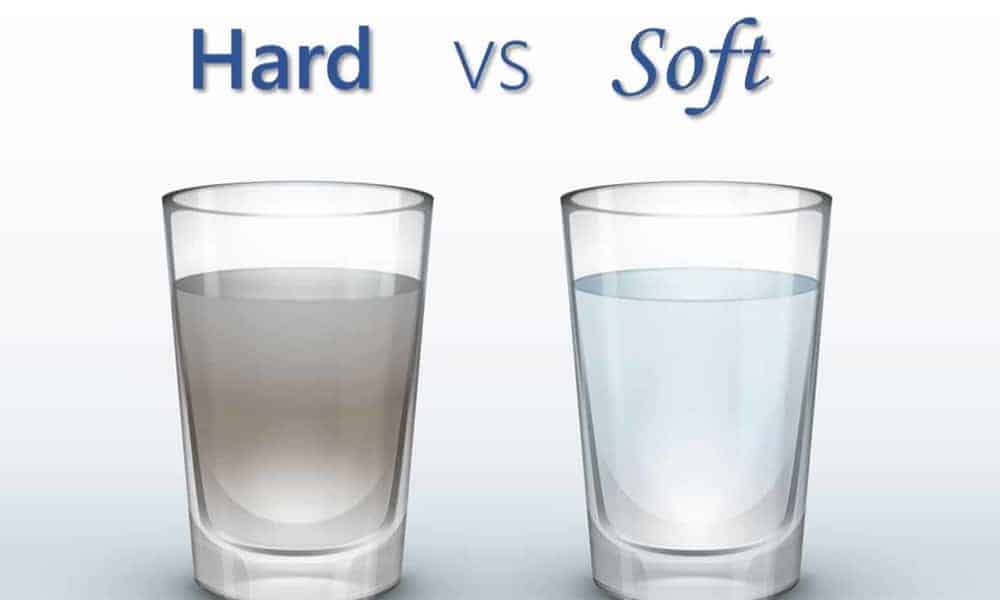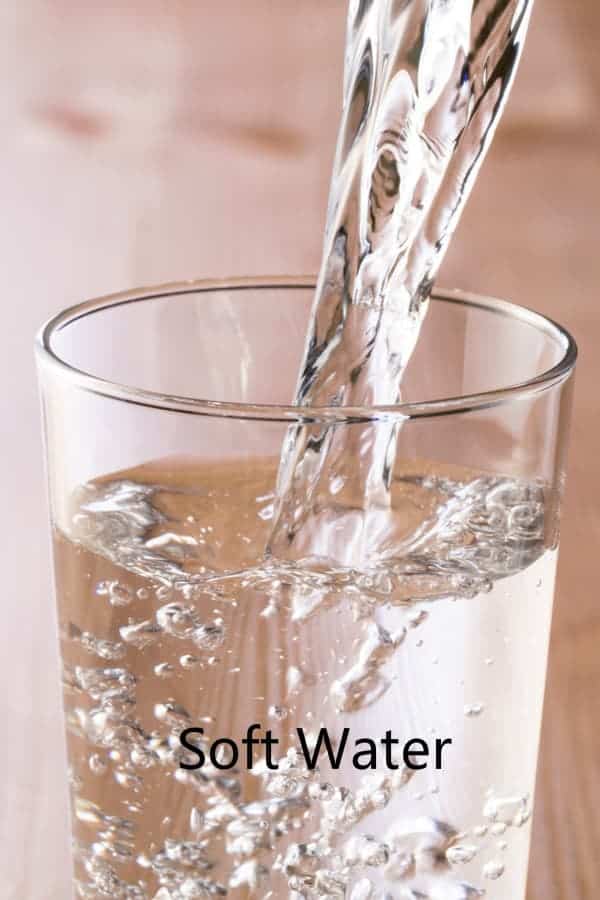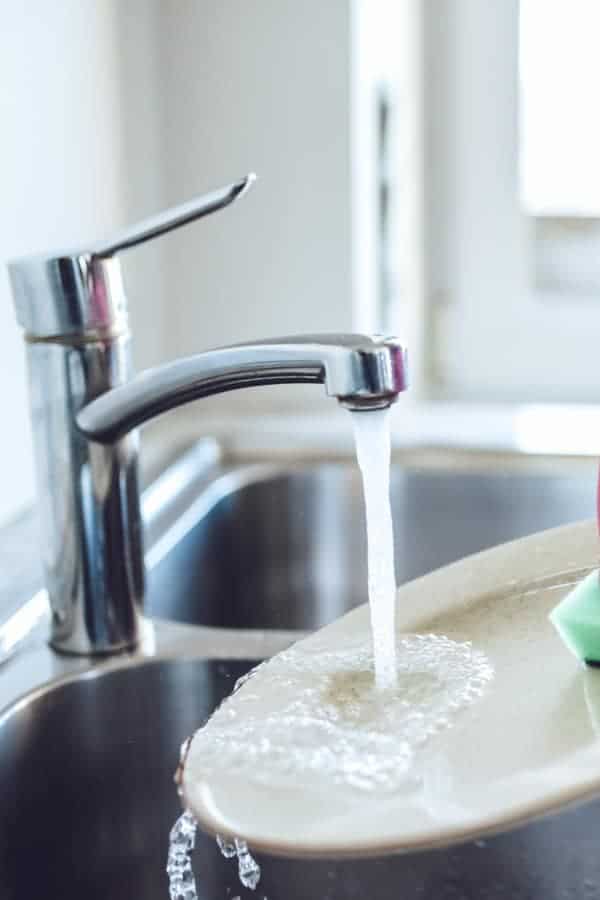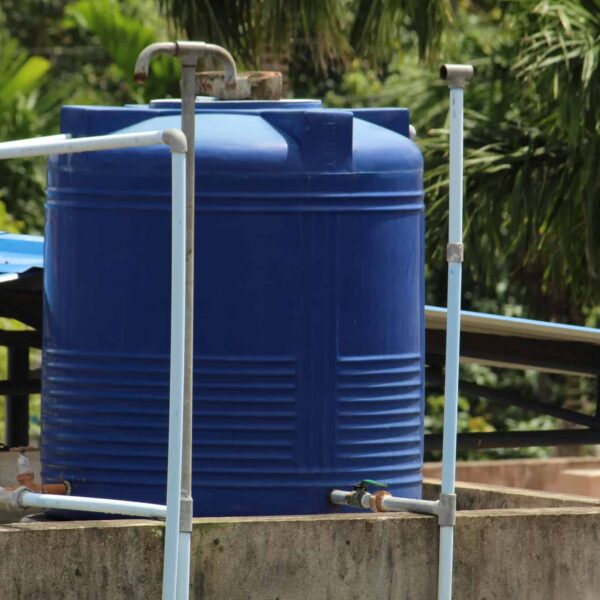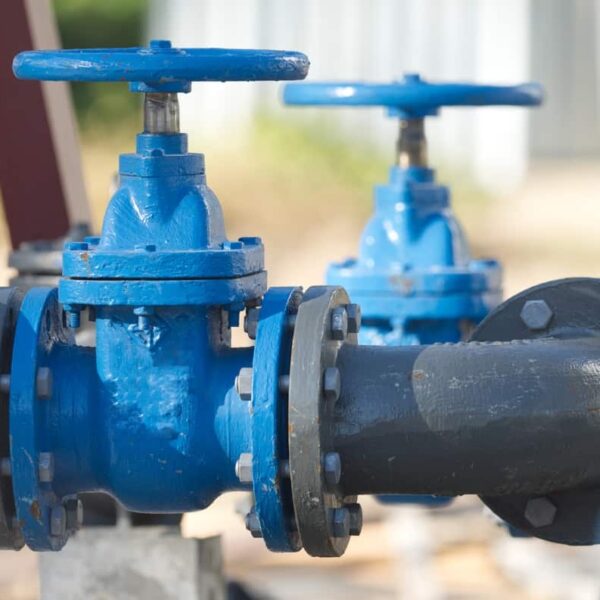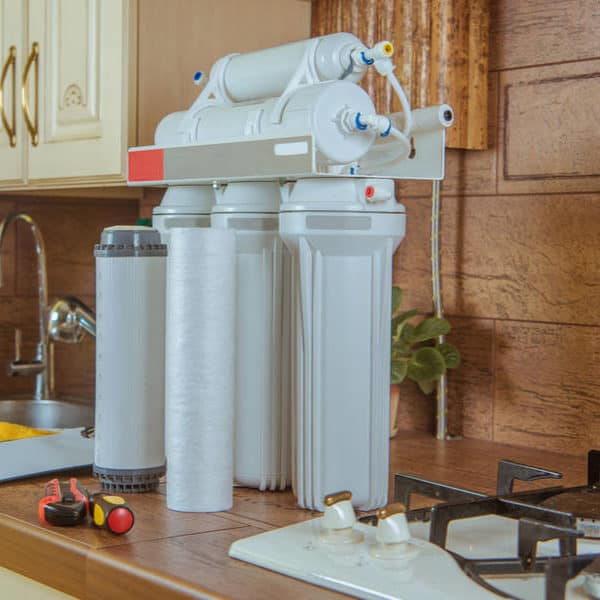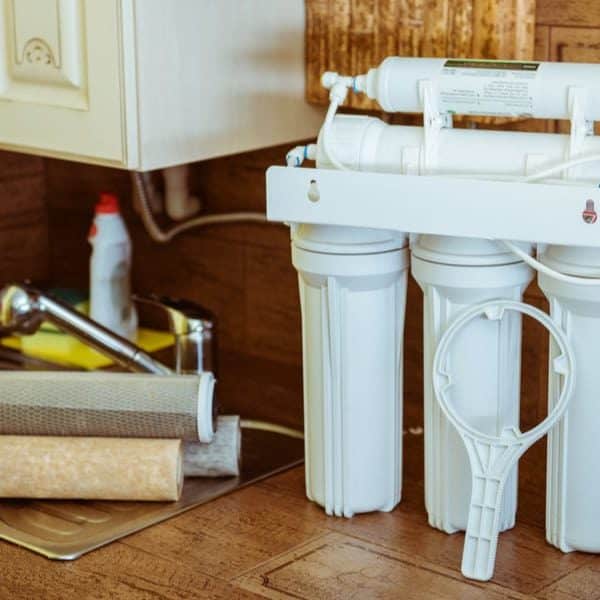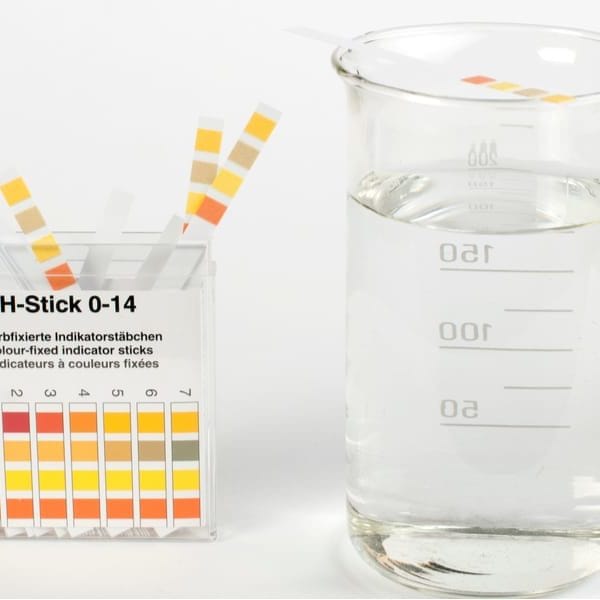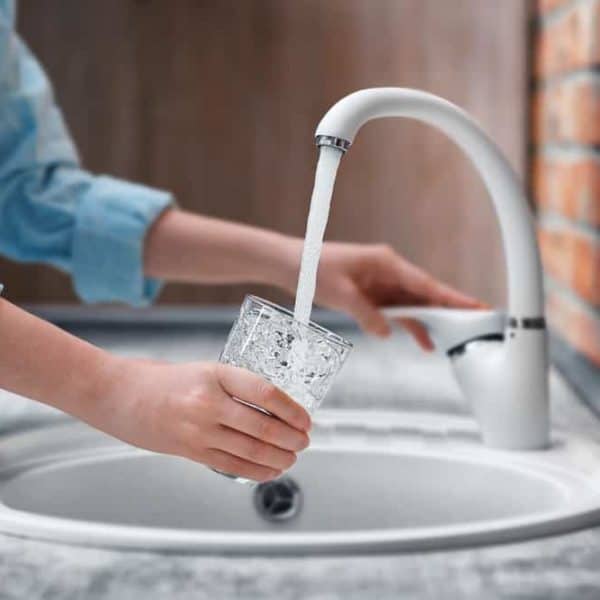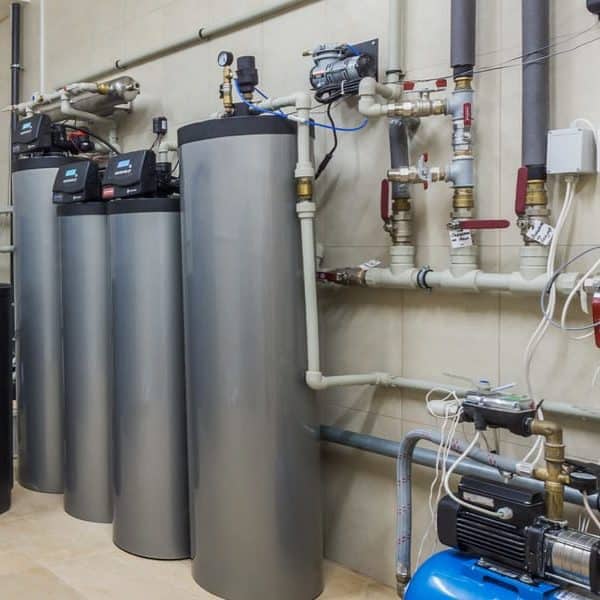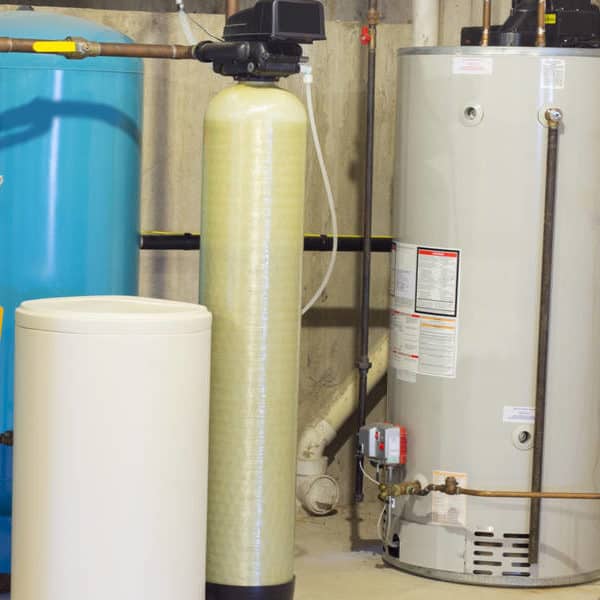Are you one of those people believing that water is water? If the answer is YES, you are probably one of the lucky ones who enjoy the benefits of great and healthy water. Once you discover the way different types of water may influence your health, dishes in your home, and plumbing pipes, you will realize that the quality of water can vary greatly.
Basically, there are two types of water, hard and soft. Which one you have in your home depends on the content of minerals and other chemicals dissolved in it. The concentration of these minerals will determine the level of hardness of the water. Let’s talk about it.
What Is Hard Water?
The term ‘hard’ implies the water contains a high level of minerals. It is water we get after soft water flows through the ground full of chalk and limestone. As a result, it becomes hard after picking up calcium and magnesium carbonates from the soil.
Many people enjoy drinking hard water since it is rich in essential minerals and tasty, unlike soft water, which is a bit salty.
The main difference between them is if there are grayish limescale deposits in the dishes, bathtubs, taps, and pipes or not. Plus, you will face different heating costs and the efficiency of your appliances.
The first sign that you have the hard water in your region is noticing the formation of limescale in kettles or water heaters and lack of foam while using soap. Plus, it will affect your skin (it will become dry) and hair (it will look dull and brittle) over time.
How to know if the water is hard?
Different requirements in every country will determine if the water is soft or not. It primarily depends on the concentration of calcium carbonate.
The law in the USA recognizes the water as soft if it contains less than 60 mg/l of calcium carbonate. In most European states, that level is 50 mg/l.
Due to high limestone concentrations in former sea beds, water is extremely hard in most states in the US. In fact, about 85% of the entire water in the US is classified as hard. Therefore, many households use water softeners to make it softer.
If you suspect your water is hard, have the water tested. The best way to make all the water in your home softer is to install a whole house water filter. If you want to get soft water without spending too much money, you can purchase a faucet water filter or refrigerator water filter as an excellent option.
The level of water hardness |
|||
|
Type of water |
In mg/l | In mmol/l | In dGH |
| Soft | From 0 to 60 | From 0 to 0.6 |
From 0.3 to 3 |
|
Moderately hard |
From 61 to 120 | From 0.61 to 1.2 | From 3.72 to 6.75 |
| Hard | From 121 to 180 | From 1.21 to 1.8 |
From 6.78 to 10.08 |
|
Very hard |
More than 181 | More than 1.81 |
More than 10.14 |
1 mg/l = 1 PPM (parts-per-million)
Temporary and permanent water hardness
Permanent hardness – It is the type of hardness you can’t remove by boiling the water. The reason is the high level of chlorides, as well as magnesium or calcium sulfates. You can soften it by using some other type of water purification process.
Temporary hardness – It occurs when the water contains too much calcium and magnesium bicarbonates. During the process of boiling, they will transform into carbonate and form precipitate. After cooling, you will get soft water.
Advantages of hard water
- It contains essential minerals, including calcium and magnesium
- It is tasty and healthy for everyday drinking
- It may prevent cardiovascular diseases, but there is still no definitive scientific confirmation that this is true
Disadvantages of hard water
- It will use more energy
- It may cause costly breakdowns in equipment if used in industry
- The excess minerals will prevent the activities of detergents, which will cause the occurrence of grayish spots on dishes and dingy-looked clothes
- It will accumulate deposits of limescale in household appliances, which will reduce their efficiency
- Accumulated limescale in plumbing will cause their clogging
- It will create the soap scrum and film on your shower and bathtub
- It will cause your skin becomes dry, and scalp starts itching
- It will change the skin’s pH balance making it susceptible to infections
- It is responsible for the occurrence of eczema in children
What Is Soft Water?
Rainwater is always soft but becomes hard after passing through the ground. It picks up minerals on its way to the source, including calcium, magnesium, lime, and chalk.
Most people try to soften hard water by using water softeners to nullify as many of its negative traits as possible. After softening, that water becomes better for washing and cleaning, since it facilitates the action of soaps and detergents.
Plus, it will prolong the life of your household appliances, including washing machines, water heaters, coffee machines, and dishwashers. Without limestone, your pipes will remain unclogged for years.
On the other hand, such water contains just ion sodium, which makes it salty.
|
The level of water hardness |
Calcium carbonate (CaCO3) | Calcium (Ca) |
| Soft | 0 to 50 mg/l |
0 to 20 mg/l |
|
Moderately soft |
51 to 100 mg/l | 21 to 40 mg/l |
| Slightly hard | 101 to 150 mg/l |
41 to 60 mg/l |
|
Moderately hard |
151 to 200 mg/l | 61 to 80 mg/l |
| Hard | 201 to 300 mg/l |
81 to 120 mg/l |
|
Very hard |
More than 300 mg/l |
More than 120 mg/l |
Advantages of soft water
- It will dissolve soap and detergents great, which will make your clothes and dishes cleaner
- It won’t cause the appearance of ugly mineral stains and soap scum on your taps, shower, and dishes
- It will cause your skin becomes soft and healthy
- It will help in prolonging the life of household appliances
- It will lower your energy bills
Disadvantages of soft water
- It is not healthy and tasty for drinking
- It gets some unwanted elements, including lead, during the process of softening or while flowing through the pipes
- It may cause issues with heart and circulation
- It may harm blood cells and impede the process of carrying oxygen to the organs
- It contains a higher level of sodium and may be harmful to people sensitive to heightened salinity, such as those with high blood pressure and diabetics
- It will make removing soap and shampoo from your skin and hair challenging job, and you will spend more water while showering
- The high level of sodium will affect your plants negatively
- It is not safe for aquariums since it is susceptible to pH fluctuations causing the death of fish
Water comparison |
||
|
Type |
Soft | Hard |
| What does it contain | Sodium (Na) |
Calcium (Ca) and magnesium (Mg) |
|
How it reacts with soap |
Crete suds | Create a film |
| Does it form lather with soap | Yes |
No |
|
How to remove |
/ | By the exchange of ions (permutit process) |
| Problems | / |
Leaves scale (deposit) |
Differences between Hard and Soft Water
Mineral content
Hard water picks up minerals, such as calcium, magnesium, lime, and chalk from the ground.
Soft water doesn’t contain any minerals.
Drinking
Hard water is an excellent and healthy choice for drinking.
Soft water has no minerals and is not tasty. Moreover, it may cause numerous health problems.
Household
Hard water causes a lot of problems when used for washing and cleaning. It leaves ugly grayish spots on your dishes and in the tap and shower. Plus, your clothes can’t be pure white after washing it.
Soft water is a better option when it comes to households. You will get shiny white laundry and glittering dishes.
Skin
Hard water affects your skin in the worst possible way, making it dry rough and scaly.
Soft water is a real friend to your skin, making it smooth, healthy, and juvenile.
Truths and Common Myths about Soft and Hard Water
As I have already said, not all waters are the same. It can be soft or hard, depending on the percentage of minerals. However, there are a lot of myths connected with different types of water. Therefore, I want to break some of them and give you the right information. Let’s see.
- No, hard water is not contaminated – It contains minerals, which are valuable nutrients for the human body. According to the World Health Organization, it is healthy and can protect you against stroke and heart disease.
- No, hard water has no awful taste – It is the opposite. Soft water is the one that is not tasty since it becomes salty during the softening process. Minerals actually improve the taste of the hard water.
- No, soft water doesn’t get your body cleaner – It is better for your laundry and all household cleaning, but it is not a superior cleaner for your body. In fact, you may have the feeling that your skin and hair are not rinsed adequately when the water is too soft.
- No, hard water won’t clog up your piping – It was possible while houses had steel piping, and calcium and magnesium stuck inside them. Nowadays, we have copper piping in our homes, and such a thing can’t happen.
